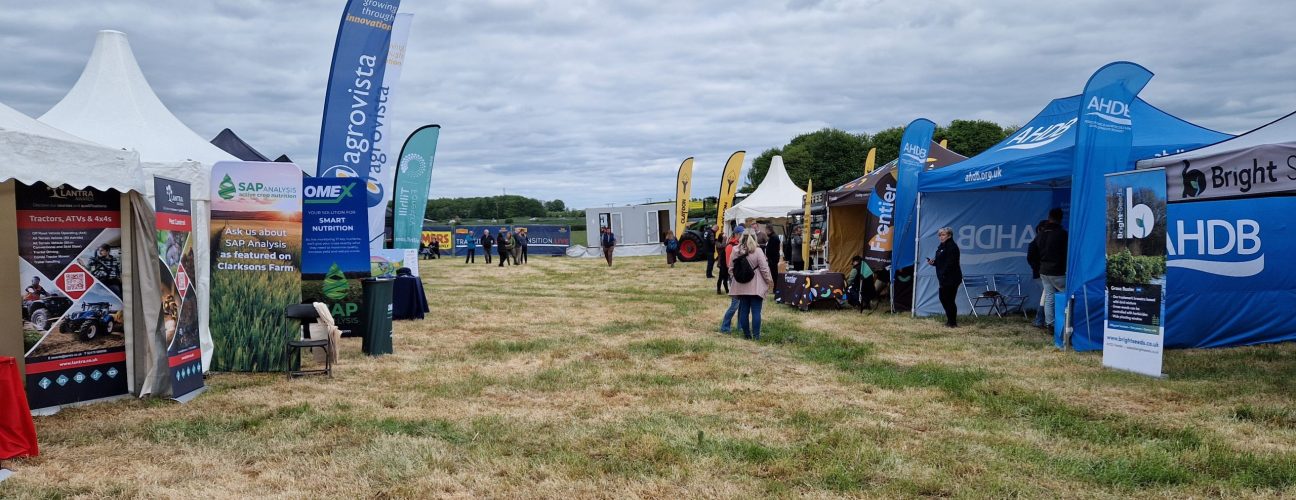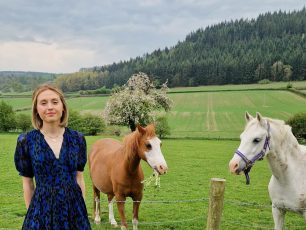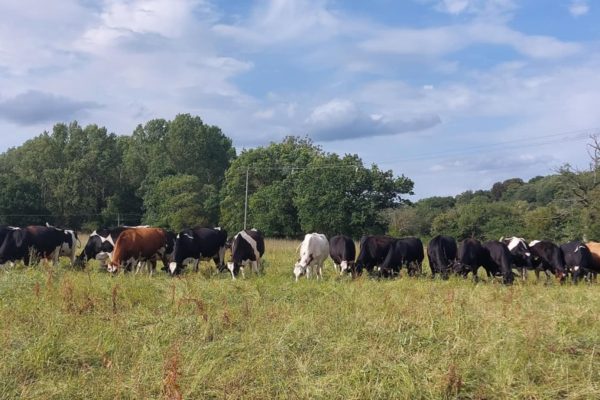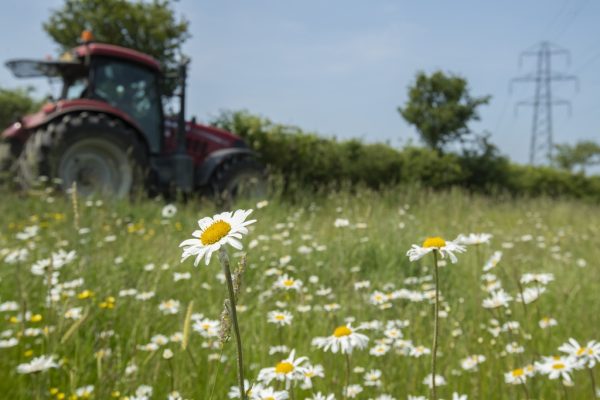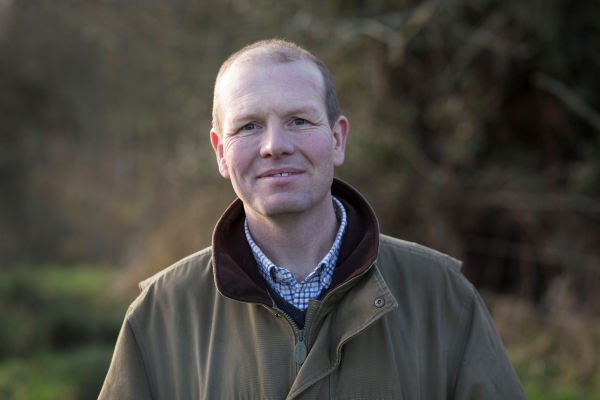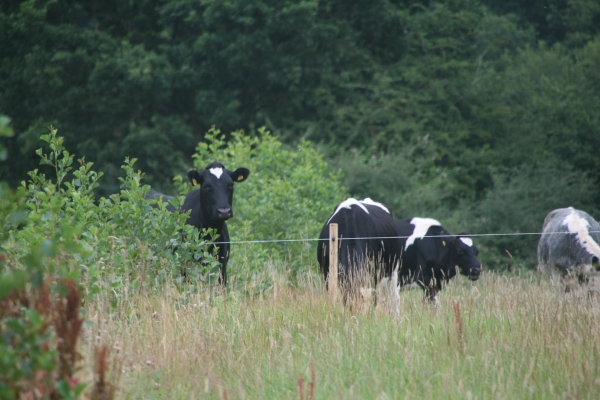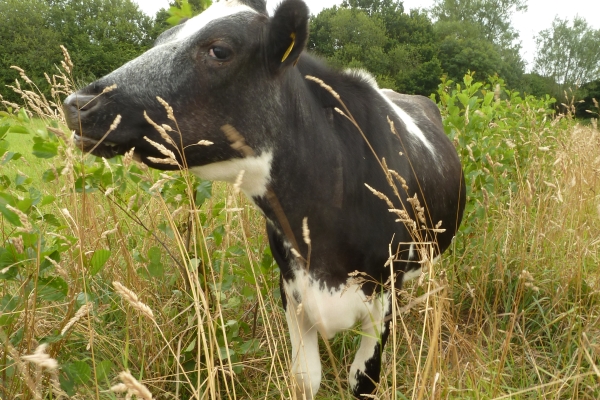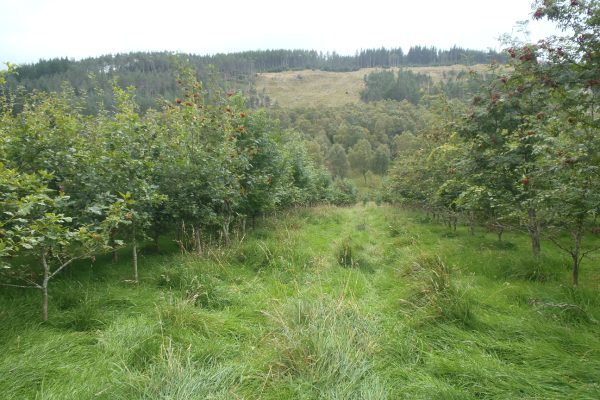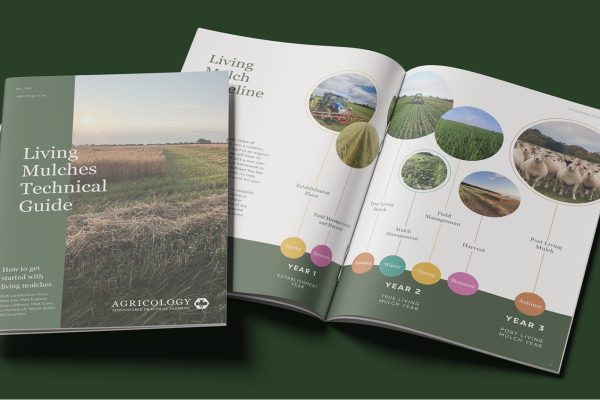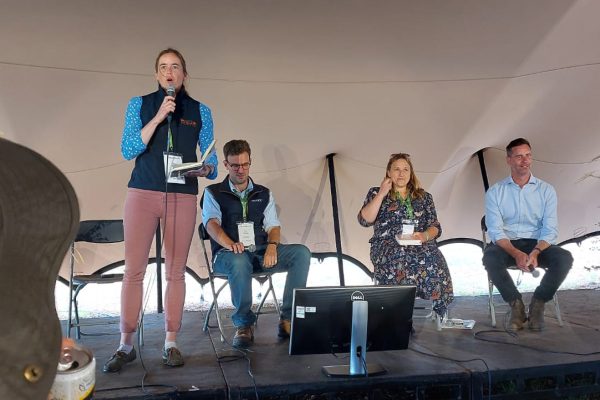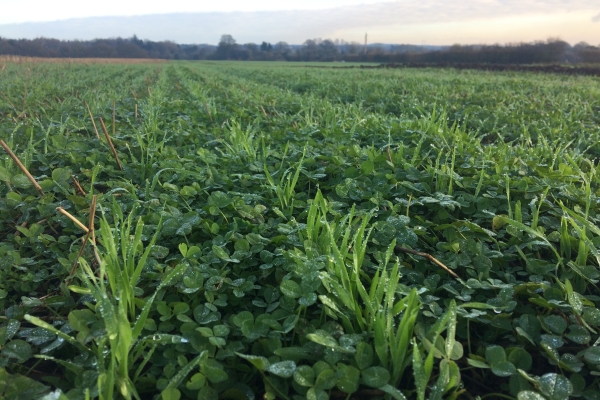Embracing collaboration and innovation at Transition Live 2025
Earlier this month I attended Transition Live 2025, hosted by Farmers Weekly, my first industry event as part of the Agricology team. This exciting day brought together farmers, researchers, advisors, policymakers and environmental organisations, all focused on the central question: How do we build a food and farming system that is more resilient, fair and sustainable? Transition Live really highlighted the importance of collaboration and knowledge-sharing in shaping the future of UK agriculture, leaving me feeling inspired and motivated in my new role.
Overview of the day
The location for the event was the University of Leeds’ Spen Farm, a 317 hectare mixed arable and pig farm near Tadcaster run following regenerative agriculture principles. Throughout the day, farm walks offered myself and the other attendees the chance to see Leeds University’s regenerative agriculture and biomass trials in action, with experiments comparing conventional and conservation practices across the site monitored by soil moisture sensors and carbon flux towers.

The exhibitor’s field comprised of 38 stands from industry experts and organisations, including Nature Friendly Farming Network, the Yorkshire Agricultural Society, LEAF, and the Woodland Trust. At the Agricology stand, Matt Smee and I engaged in lots of rich and wide-ranging conversations with partners and stakeholders from across the food and farming industry. It was a pleasure to meet so many new faces! The vast majority of discussions I had reinforced Agricology’s core ethos that sharing practical, real-world experience is essential to supporting positive change at the field level. We were also able to distribute some printed copies of our new Living Mulches Technical Guide, which proved very popular amongst attendees.
In the afternoon I was able to visit the Innovation Hub, created in partnership with UK Agri-Tech Centre, which acted as a space for farmers, specialists and researchers to showcase the latest technology, gain practical advice and share skills. This part of the event showcased some really exciting ideas, demonstrating the breadth of opportunities and efficiencies that new technology can offer to farmers.
Highlights from the panel discussions
For me, the highlight of the event programme was 12 insightful panel discussions which took place in the main barn, on topics including upland farming, renewable energy, climate resilience, and succession planning. A standout panel discussion focused on silvopasture – the practice of integrating trees into grazing systems. During this conversation, Andy Gray from Elston Farm in Devon shared his journey of transforming compacted, overworked soils through tree planting and other regenerative approaches. He described how the introduction of silvopasture into his farm management strategy has significantly improved soil quality by enhancing mineral retention and nutrient cycling. This has resulted in noticeable improvements in grazing duration, animal health, and biodiversity, leading to enhanced productivity and profitability across the whole farm.
At Elston, a diverse mix of 26 different species of native trees have been planted in 14m rows. Hawthorn trees are used to protect standards and remove the need for fencing, allowing for the reintroduction of livestock after just 4 years. Andy shared some of his ‘top tips’ for anyone considering starting out with silvopasture, emphasising the importance of focusing on the critical establishment phase, ‘planting small to grow big’, utilising grants where possible (but not letting them dictate your strategy), letting animals have agency, and observing and adapting management over time. He also spoke about the value of involving local volunteers in tree planting – showing how agroforestry can also serve to connect farms with wider public interest in nature restoration, sustainable food systems, and climate action.
Also contributing valuable knowledge to the discussion and offering practical advice were fellow panel members Helen Chesshire (Woodland Trust), Martin Lines (Nature Friendly Farming Network), and Emma Hosker (White Rose Forestry).
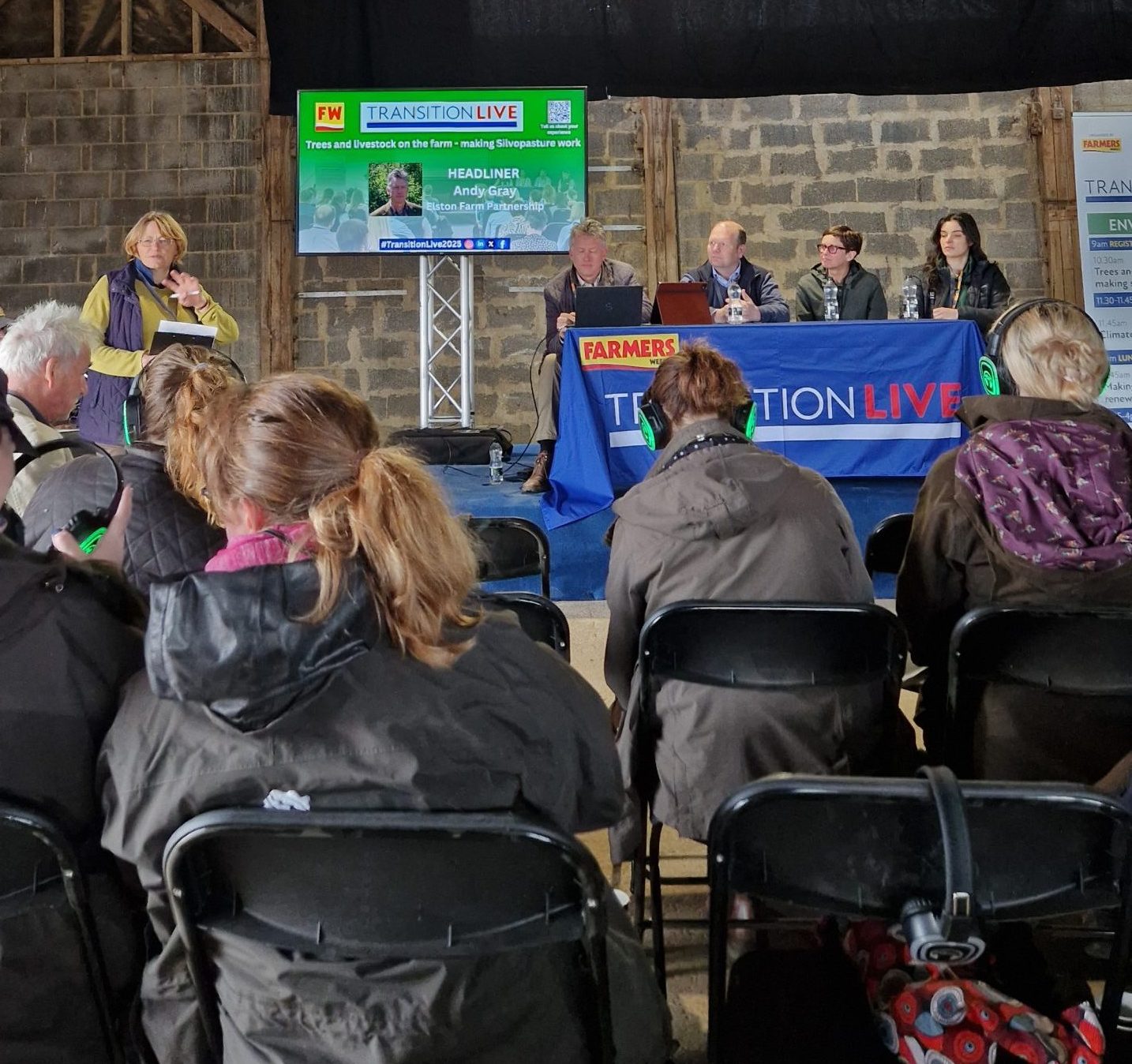
Another session I attended featured Ellie Lovell of Tack Farm, who talked about her role in building a high-input, high-output dairy system with a strong focus on sustainability, staff wellbeing and continuous improvement. Coming from a background in accountancy, Ellie stressed that to get farmers on-board with sustainable practices there must be a financial incentive. Her message was clear: “There’s no sustainability without profitability.” She spoke passionately on the importance of teaching and training the entire farm team, through schemes such as regular appraisals, and the mentoring of younger staff members.
Also on that panel was Professor Michael Lee of Harper Adams University, who called for collaborative approaches that support farmers to pursue sustainability across environmental, social and economic dimensions. Michael told the audience that farmers are great innovators – with the vast majority of great ideas for improving efficiency and reducing emissions coming from farmers themselves rather than researchers or industry.
Reflections and key take-aways
All the sessions showcased very different examples, but shared a key message: there’s no single route to agricultural transition. Supporting farmers to innovate within their own contexts, while also providing access to funding, resources, advice and shared knowledge, is vital.
Transition Live 2025 underscored the importance of creating space for honest conversations, relationship-building, and collaboration between sectors. Attending this event helped me to understand that agricultural transition is not simply about adopting new practices; it’s about shifting cultures and enabling joined-up thinking across food, environment and rural economies.
My take-home message for the day was that resilient farming depends not only on techniques or tech, but on relationships: between farmer and land, farmer and livestock, and farmer and wider community.
This event was part of the Farmer’s Weekly Transition Initiative, which aims to explain the complex production, policy and environmental issues facing British farmers. You can visit the online Transition Hub here. Huge thanks to everyone at Farmers Weekly and all those involved in delivering this day.
I am looking forward to continuing the conversation and supporting more farmer-led learning through my new role at Agricology. You can read more about me here. Please do come over and say hello if you see me at one of our upcoming events, I would love to chat!
